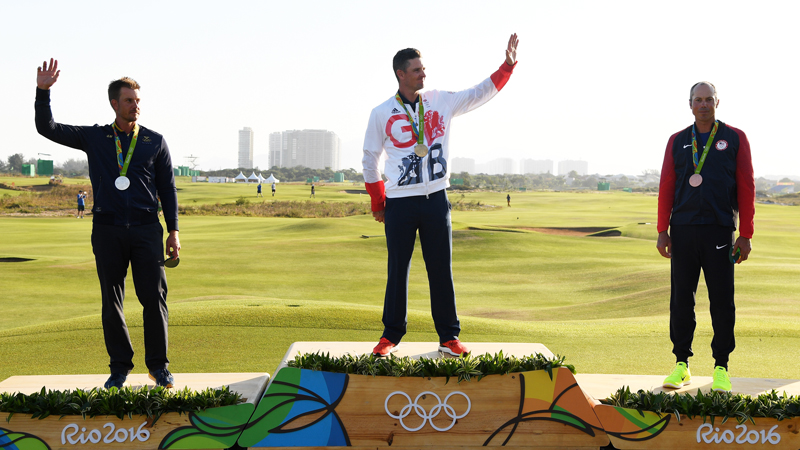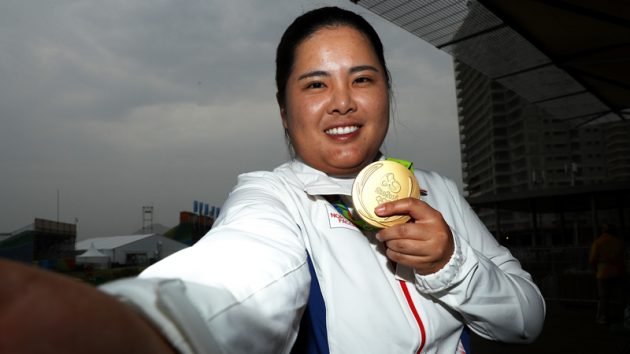Does Olympic Golf Really Matter?
Fergus Bisset considers the significance of Olympic Golf in the elite game.


Fergus Bisset considers whether or not Olympic Golf should be viewed as one of the most significant events in the elite game.
Does Olympic Golf Really Matter?
Speaking after The Open Championship at Royal St George’s, Rory McIlroy displayed a well-reported and distinct lack of enthusiasm for competing in his first Olympic golf tournament at Kasumigaseki Country Club in Japan next week.
Perhaps it was a reflection of another disappointing Major performance, or perhaps simply apathy but he was pretty clear-cut – “I don’t know if there’s much to look forward to,” he said. “I’m not a very patriotic guy. I’m doing it because I think it’s the right thing to do.”
Others have chosen not to prioritise Olympic golf this season. Dustin Johnson said earlier in the year that it came, “right in the middle of a big stretch of golf,” and would mean a long journey, “at a time where it’s important to feel like I’m focused playing on the PGA Tour.”
If some of the best golfers in the world are less than galvanised, does Olympic golf really matter?
I think it absolutely does and there are a number of reasons why.
Subscribe to the Golf Monthly newsletter to stay up to date with all the latest tour news, equipment news, reviews, head-to-heads and buyer’s guides from our team of experienced experts.
A future pinnacle
For many top-level golfers, the four Majors, and five for women, remain the absolute pinnacle of the individual game.
Perhaps this is inevitable in a sport in which a competitive framework has been established for over 150 years.
Were the first or second Opens as eagerly anticipated as the 150th?
When Bobby Jones hosted the first Augusta Invitational in 1934, the tournament was not the pinnacle of the sport.
But now The Masters is up there, and many pros would say donning a green jacket is their main ambition in the game.
In my opinion, golfing history will look back at Olympic golf as being on a level with, if not surpassing Major success.
A one-time Olympic gold medallist will be given more kudos than a one-time Major champion.
This is because Olympic champions will be a select few.
With the tournament coming only once every four years, there will be 16 men’s Major champions crowned between each Olympic gold medallist. With five Majors in the women’s game, there will be 20 Major champs between Olympics.
And the limited chances to win an Olympic gold will mean the games will become a key target for multiple Major winners, those looking to bolster their golfing CVs.
Olympic glory could solidify a player’s position in the pantheon of the greats.
If you consider tennis, few will recall the final in the year of the sport’s re-inclusion, Seoul 1988, between Czechoslovakia’s Miloslav Mecir and Tim Mayotte of the USA, but most will remember Andy Murray beating Roger Federer at Wimbledon in 2012 and then the Scot retaining his title in 2016.
Andy Murray is a two-time Wimbledon champion and a two-time Olympic gold medallist… The latter certainly sounds pretty good to me and will, in time perhaps, hold as much prestige as the former. Its value is increasing with each four-year cycle that passes.
It’ll be the same for golf.
National pride
The Olympics provide a chance for golfers to represent their country as individuals.
In the professional game, it’s the only real time they’re individually out there playing for their country.
Rory has been accused of being unpatriotic by saying he doesn’t believe in flags, but he’s in something of a unique position. Playing for Ireland in Japan but hailing from Great Britain and Northern Ireland, being patriotic in either direction is very difficult.
The vast majority of Olympic golfers are hugely proud of their country and relish the opportunity to represent it.
Consider last time out in Rio. Justin Rose winning gold in the men’s event was an extremely proud moment not only for him, but also for all golfing fans in this country.
I for one celebrated his triumph as loudly, perhaps more loudly, than any other UK gold medal.
So too I’m sure for South Korean fans and their women’s champion Inbee Park.

Equality for the sexes
Golf in the Olympics offers an important stepping-stone on the route towards parity between the sexes in golf.
The Olympics is, currently, the only event at the very top-level of golf where men and women compete over the same course for the same prizes – gold, silver and bronze.
It should be viewed as a template for how golf might look to achieve equality between the sexes going forwards.
That is a key reason why golf in the Olympics matters.
And for the women’s game, the event gives tremendous exposure. A worldwide audience will see the skill levels possessed by the top female golfer and the exciting competition it produces.
The top-10 players in the Rolex Women’s World Rankings will all tee it up at Kasumigaseki CC, and the full field is incredibly strong.
It will be a great showcase for women’s golf.
Growing the game
One key reason why golf in the Olympics matters is the impact in countries where golf is not an established sport.
The possibility is that people in those countries will see golf in the Olympics and want to start playing.
Also, golf will reach wider audiences in countries where golf is played, creating a greater understanding and interest in the sport.
With the worldwide TV viewing figures received by the Olympics, this can only be positive for golf.
Perhaps countries with Olympic sporting ambition go further though and begin to invest more in golf?
When considering budgets for Olympic sports, developing countries will target sports where they see a realistic chance of creating a competitive advantage through investment.
For example, the Chinese saw an opportunity to harness their large population at relatively low cost to dominate table tennis. Since it became an Olympic Sport in 1988, China has won 28 of the 32 gold medals awarded.
Golf may be a tougher arena to enter, but the recent success of Asian countries, particularly in the women’s game, shows it can be done.
Does Olympic golf really matter? Emphatically, yes. Not only is it an incredible international showcase for our sport but it’s also a tremendous chance for the men and women who compete to achieve something, equally, for their country that very few in the history of the sport will be able to do.
In 2050, the winners of gold in the Tokyo Olympics will be remembered as readily and with as much, if not more acclaim than the winners of this year’s Majors.

Fergus is Golf Monthly's resident expert on the history of the game and has written extensively on that subject. He has also worked with Golf Monthly to produce a podcast series. Called 18 Majors: The Golf History Show it offers new and in-depth perspectives on some of the most important moments in golf's long history. You can find all the details about it here.
He is a golf obsessive and 1-handicapper. Growing up in the North East of Scotland, golf runs through his veins and his passion for the sport was bolstered during his time at St Andrews university studying history. He went on to earn a post graduate diploma from the London School of Journalism. Fergus has worked for Golf Monthly since 2004 and has written two books on the game; "Great Golf Debates" together with Jezz Ellwood of Golf Monthly and the history section of "The Ultimate Golf Book" together with Neil Tappin , also of Golf Monthly.
Fergus once shanked a ball from just over Granny Clark's Wynd on the 18th of the Old Course that struck the St Andrews Golf Club and rebounded into the Valley of Sin, from where he saved par. Who says there's no golfing god?